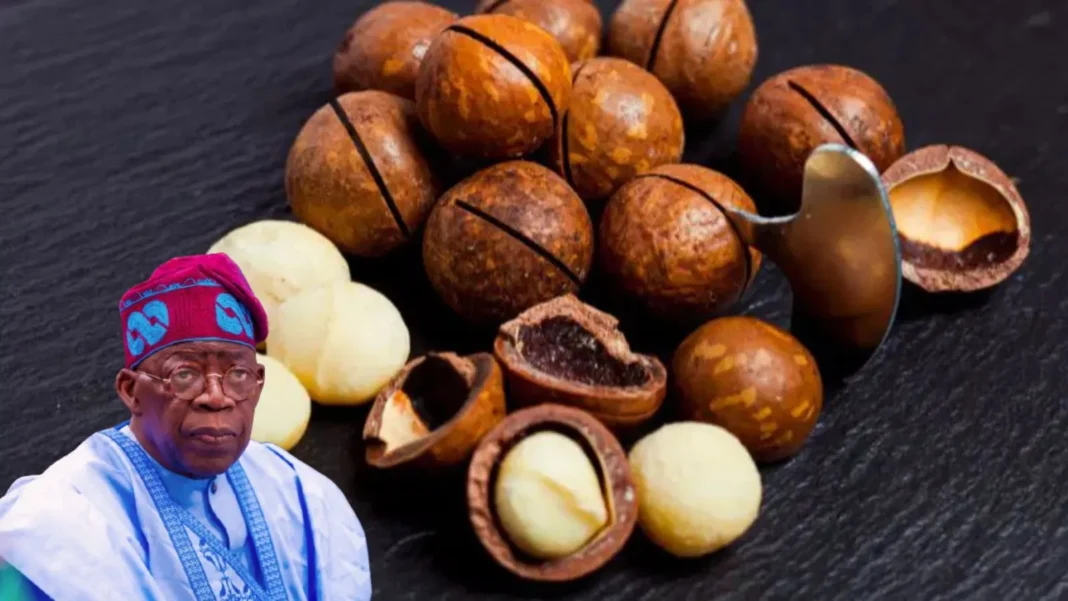On Tuesday, August 26, 2025, President Bola Ahmed Tinubu announced a six-month suspension on the export of raw shea nuts, a move aimed at boosting local processing and reclaiming Nigeria’s stake in the global shea industry.
The announcement, delivered by Vice President Kashim Shettima during a multi-stakeholder meeting at the Presidential Villa, Abuja, left many Nigerians asking: Why does shea matter so much?
Here’s a breakdown of what you need to know about this decision, the shea industry, and how it could reshape Nigeria’s economy.
1. The Shea Tree Is a Generational Treasure
The shea tree is no ordinary crop. It takes 15 years to bear fruit and 25 years to mature fully, but once it does, it produces for over 200 years.
Inside the fruit lies an oil-rich kernel — the source of shea butter, often referred to as “Africa’s gold.”
2. Nigeria’s Shea Journey Started with Nature
The shea tree wasn’t planted by farmers but spread naturally, thanks to animals that ate and dispersed its seeds.
Today, shea trees grow in 21 Nigerian states, particularly in Kwara, Kogi, Niger, Oyo, and Ogun, forming the backbone of rural livelihoods.
3. Nigeria Leads the World, But Earns the Least
Nigeria produces nearly 40% of the world’s shea nuts, yet captures less than 1% of the $6.5 billion global market.
The reason? Most of Nigeria’s exports are raw nuts, allowing other countries to refine them into shea butter and capture the real profits.
4. Shea Butter Is Everywhere
Shea butter isn’t just for skincare.
-
Beauty: Used in creams, lotions, and anti-aging products.
-
Food: Serves as an alternative to cocoa butter in chocolate and baked goods.
-
Medicine: Found in balms, soaps, and ointments.
With global cocoa shortages, the demand for shea butter is rising, making Nigeria’s underutilized resource a potential goldmine.
5. The Goal: Turn Raw Nuts into Local Wealth
According to President Tinubu, exporting raw shea is like “exporting poverty and importing value.”
The new policy aims to:
-
Protect domestic processors.
-
Expand local refining capacity.
-
Boost Nigeria’s share of the $6.5 billion global market.
With growing market access in Brazil and other regions, the government plans to create jobs, grow exports, and ensure prosperity under the Renewed Hope Agenda.
6. Impact on Nigerians
While exporters of raw nuts may face short-term challenges, local processing could:
-
Create more factory jobs nationwide.
-
Increase earnings for women in rural communities who traditionally gather shea nuts.
-
Reduce smuggling and increase government revenue.
7. Shea Could Be Nigeria’s Next Agricultural Gold
Experts project that Nigeria could generate $300 million annually in the short term and grow the sector to $3.5 billion in a few years.
Dr. Ahmed Ismail of the Federal University of Minna calls the ban a “bold and overdue step,” urging better regulation to protect farmers who often sell cheaply due to exploitation.

The ban isn’t just a policy; it’s a wake-up call. For decades, Nigeria gave away its “green gold,” letting other countries profit. Now, with strategic reforms and local investment, the shea industry could become the country’s next big economic success story — much like cocoa once was.
Next time you apply a cream, enjoy chocolate, or spread margarine, remember: there’s a good chance Nigeria’s shea butter played a part — and it could soon fuel the nation’s prosperity.







